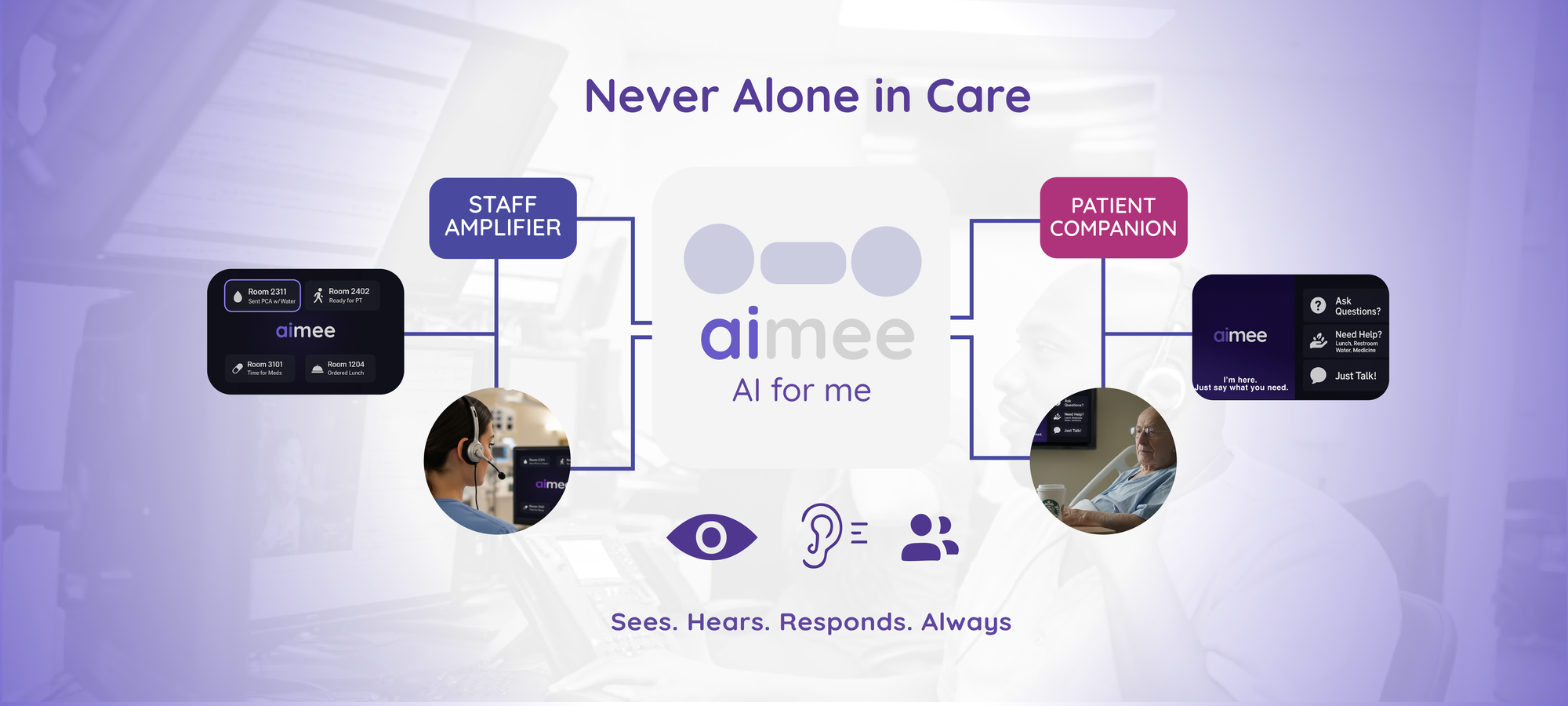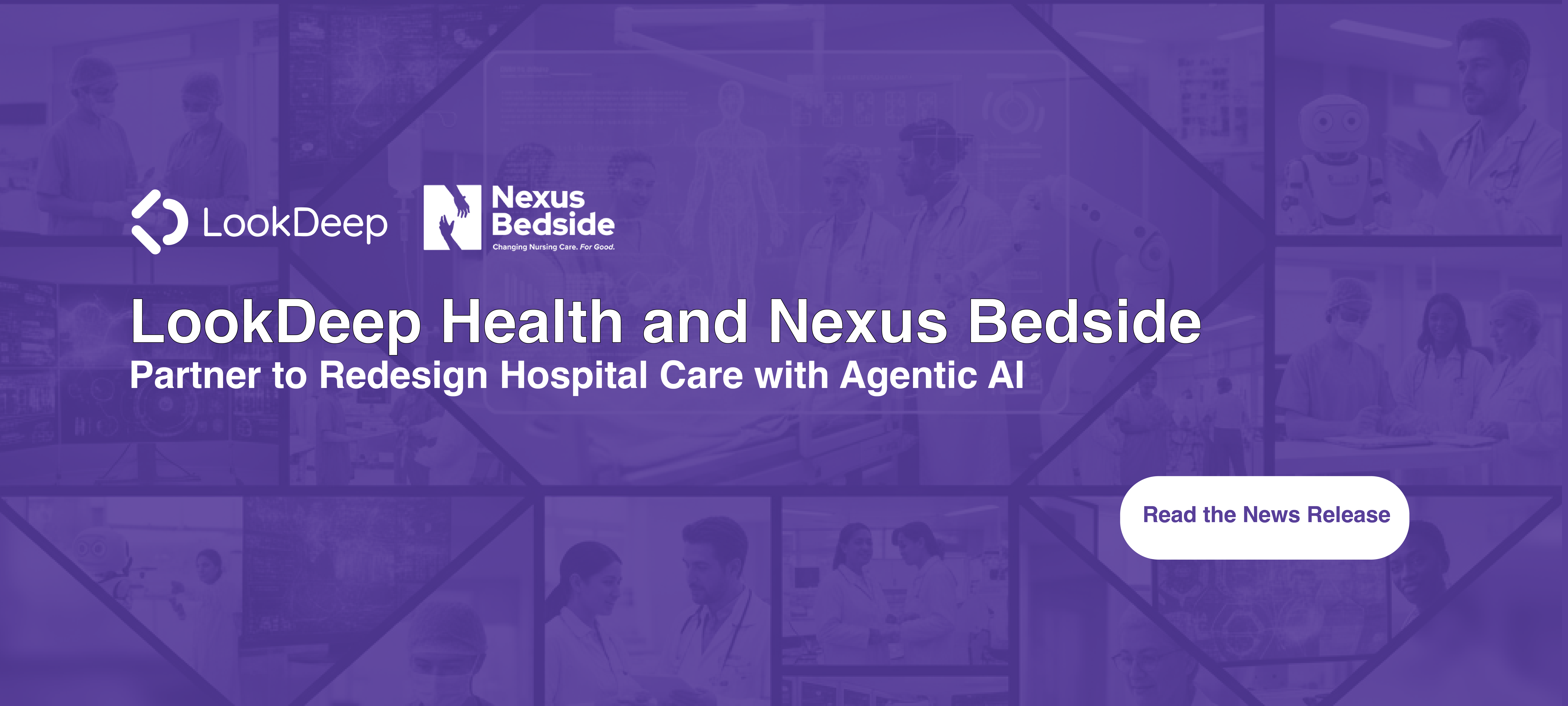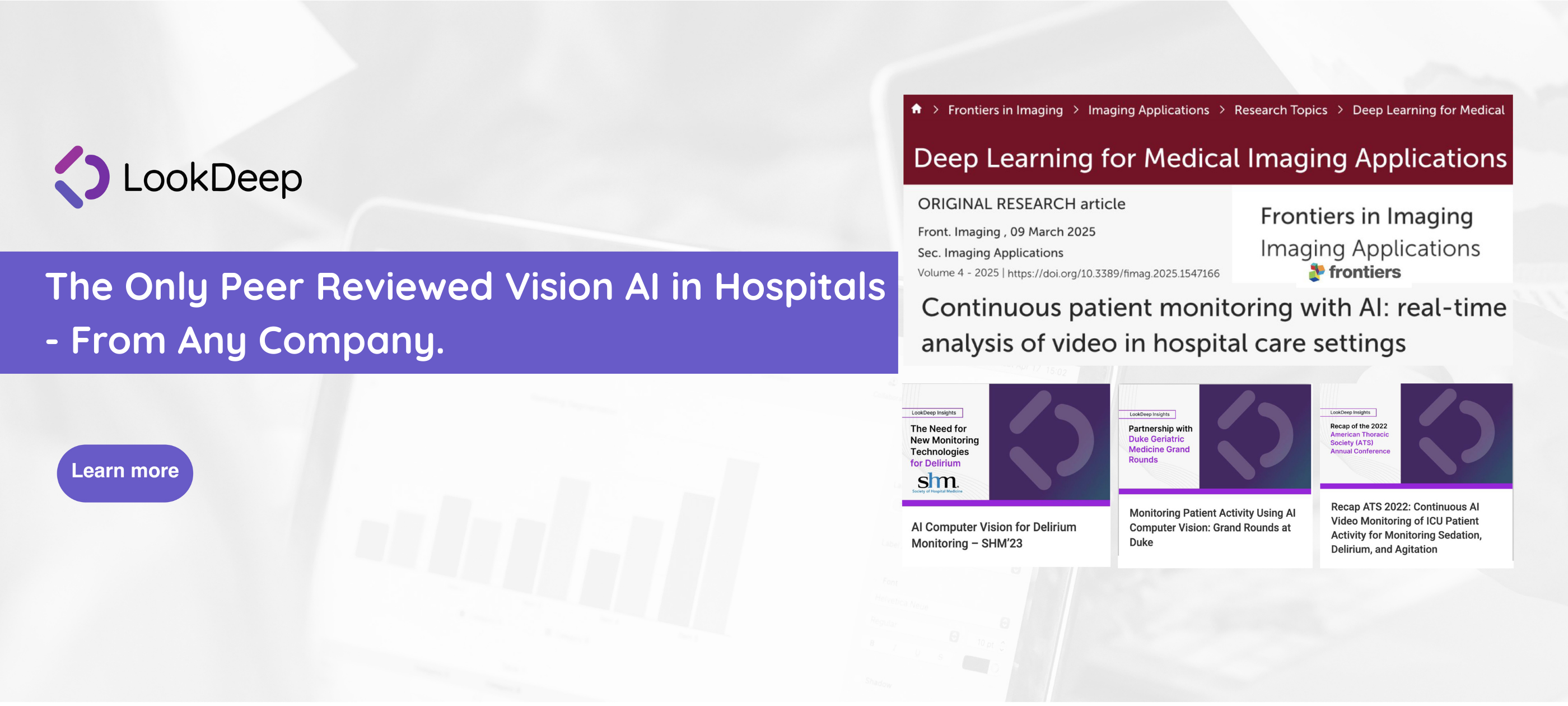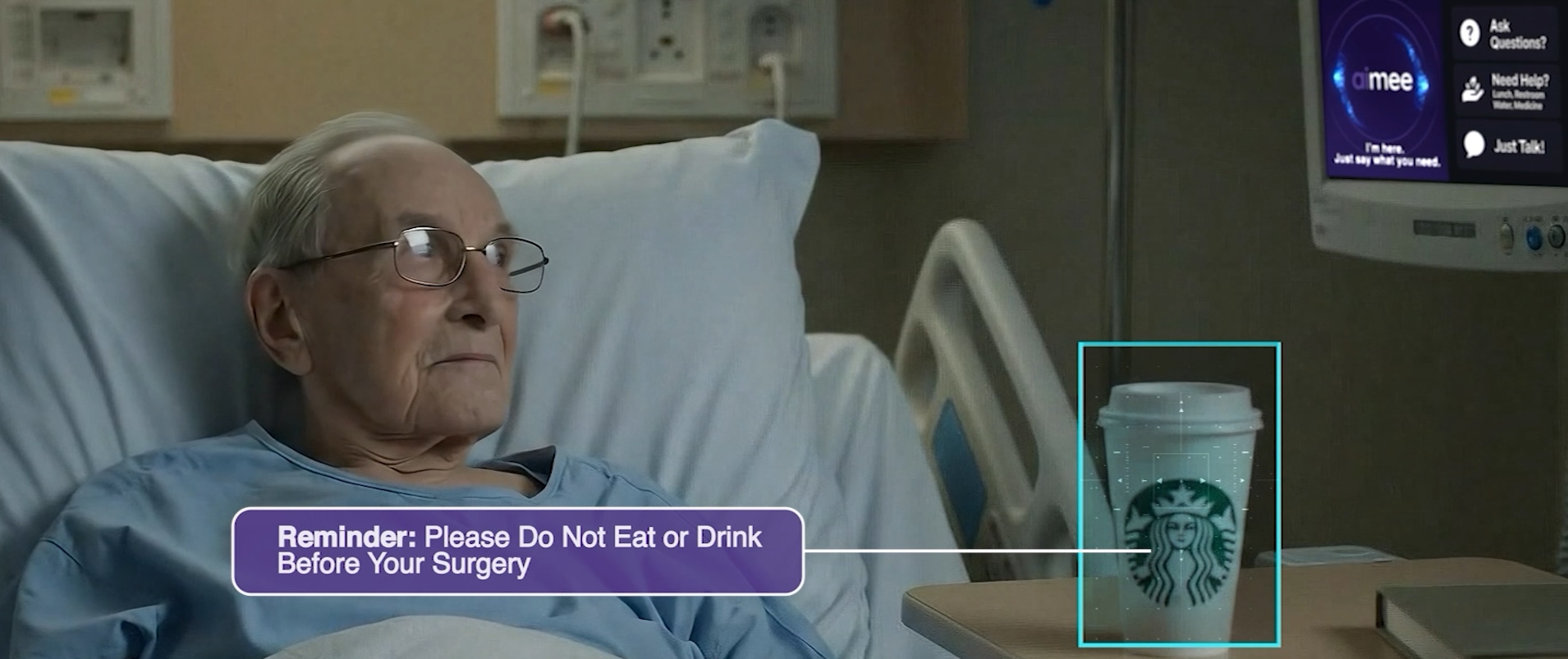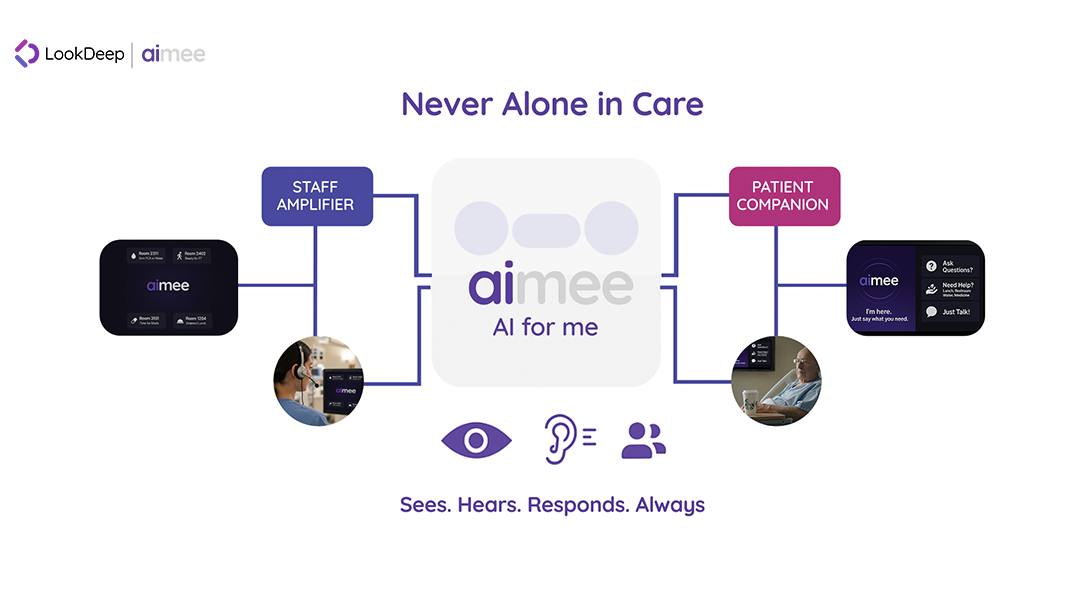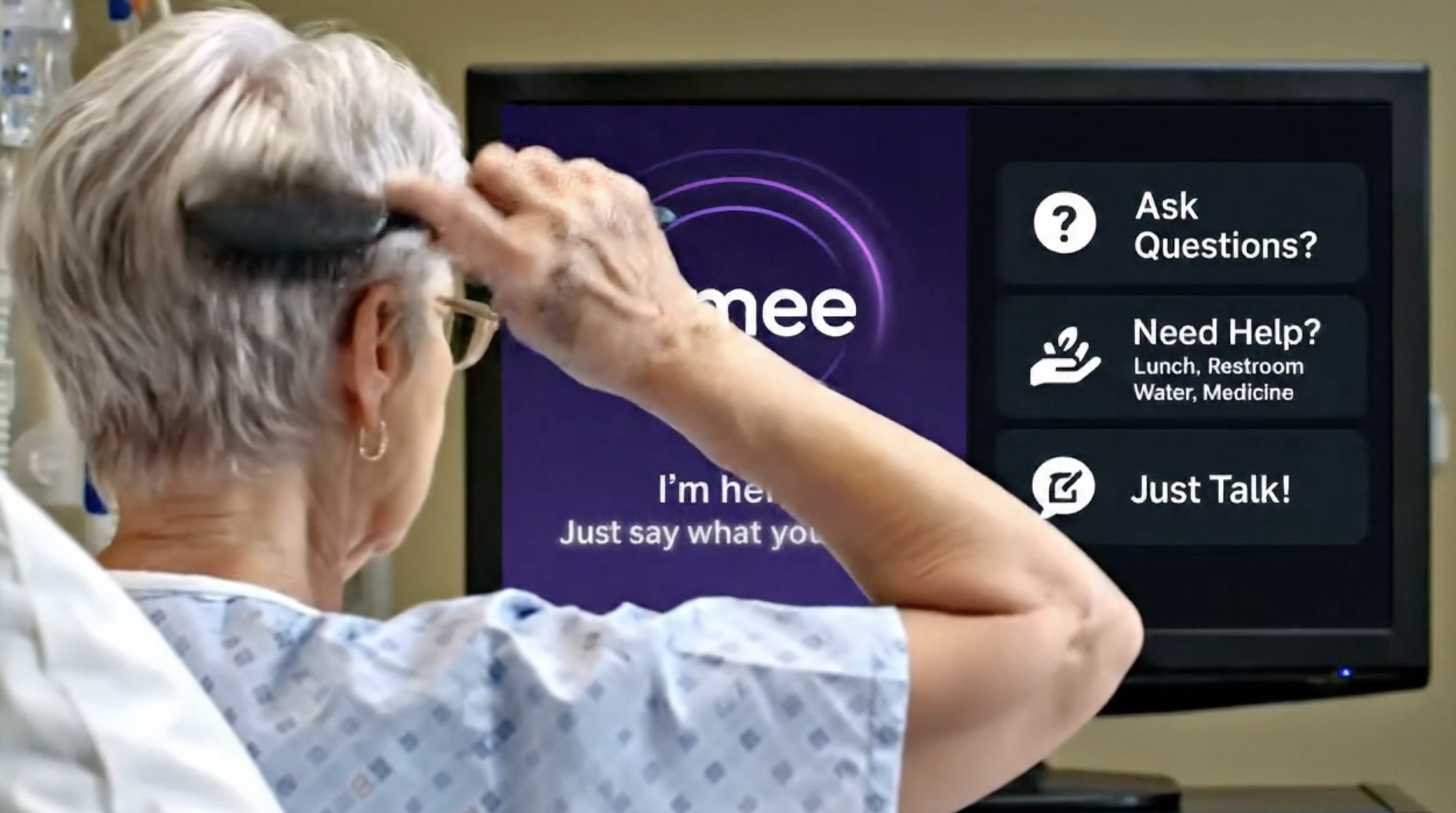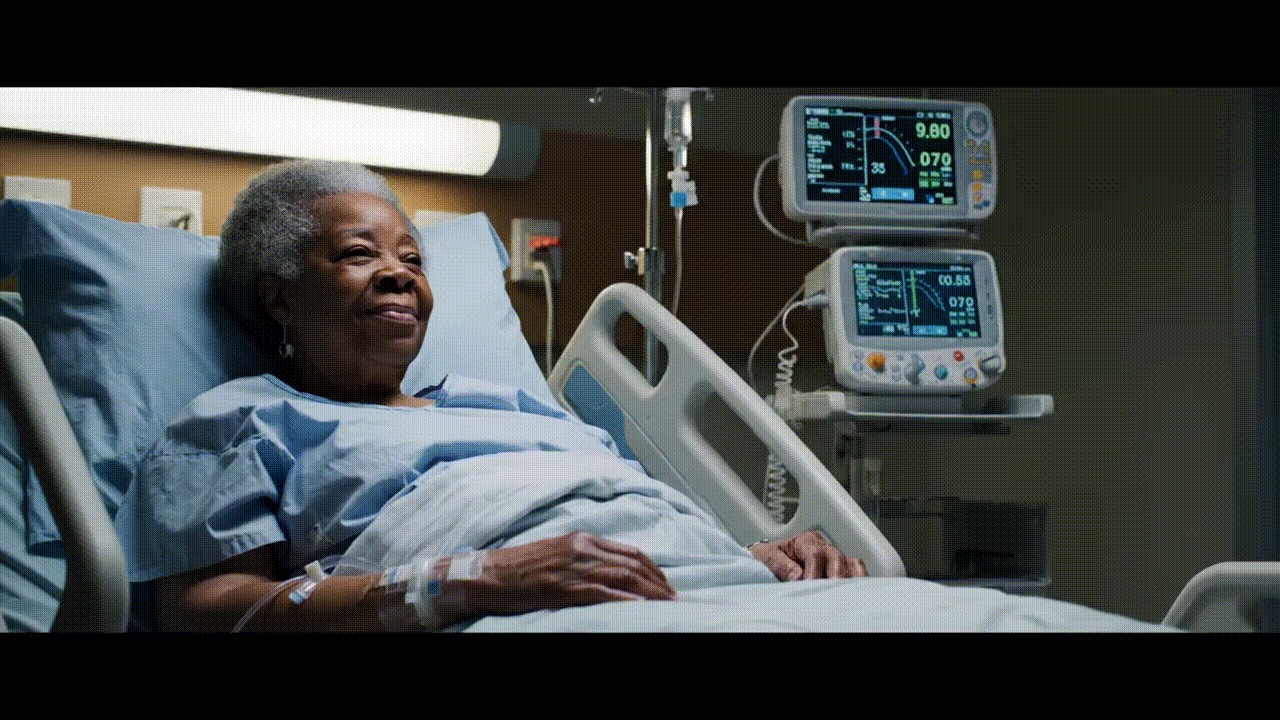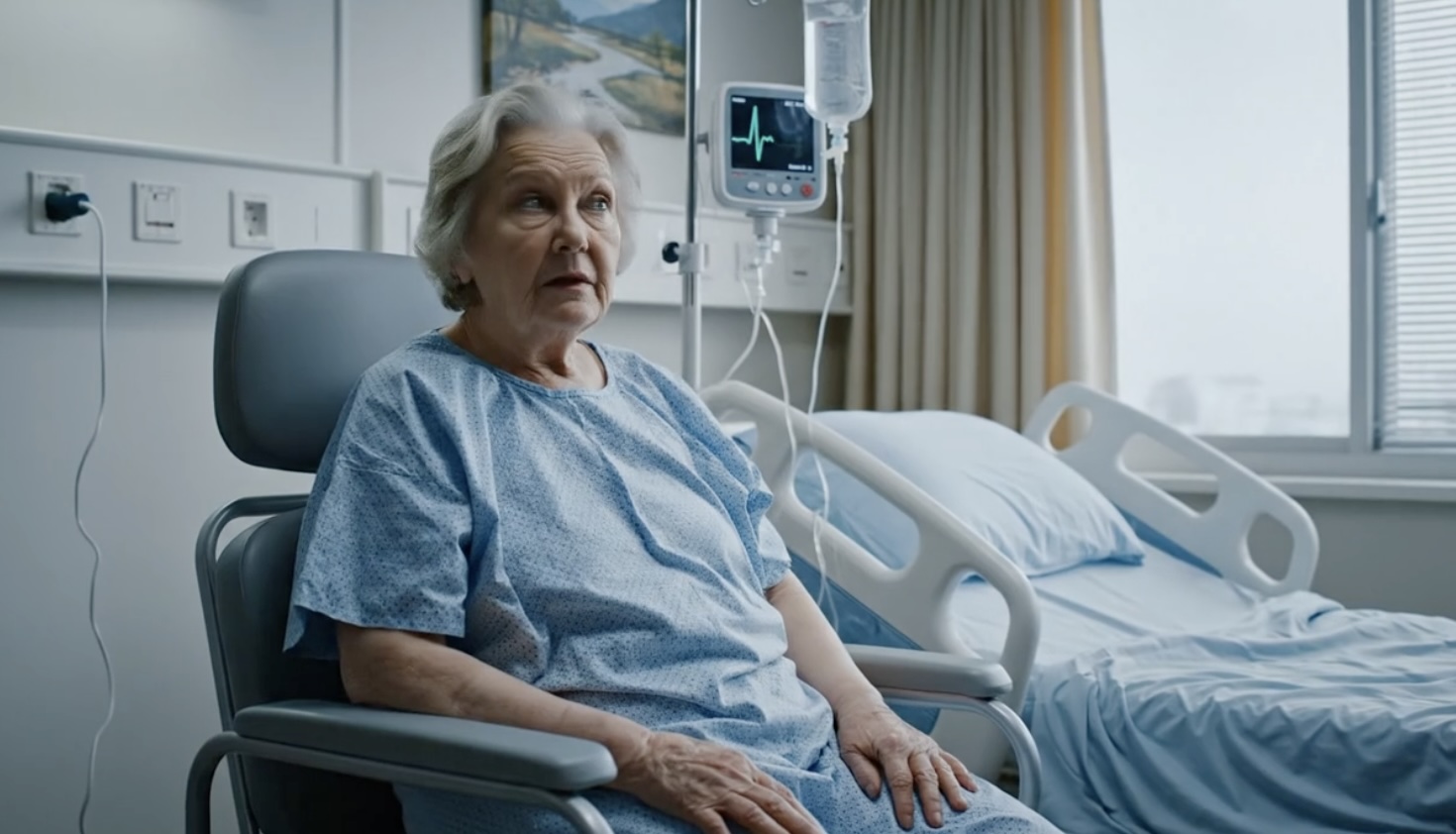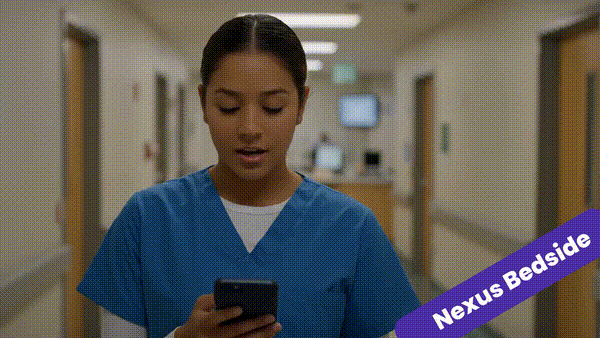
aimee Mentors a New Nurse
Using real-time observation and assessment checklists, Aimee monitors a new nurses's patient evaluation, identifies missed elements, and offers to gather the necessary information directly from the patient to complete the assessment.
.gif)
Ordering Lunch (Spanish)
Aimee: Hi, I'm Amy, a patient and clinical team assistant for the hospital. How can I help you today? Patient/Speaker: Hello Amy, do you speak Spanish? Aimee: Hello! Sure, I can answer in Spanish. How can I help you today? Patient/Speaker: Well, I'm a little hungry. Patient/Speaker: Can you help me order something to eat?

Sleep Comfort
aimee conducts pre-sleep comfort assessments offering suggestions for improvement and automatically adjusts room environmental controls to optimize rest conditions.

Pain Medication Side-Effect Check (Mixed Arabic)
aimee monitors for common opioid side effects including itching nausea and dizziness approximately one hour after medication administration.

Pain Medication Side-Effect Check (English)
aimee monitors for common opioid side effects including itching nausea and dizziness approximately one hour after medication administration.

Mobility Check
aimee references PT milestones to assess patient comfort levels, encourage mobility goal achievement, and coordinate assistance from nursing or therapy staff when needed.
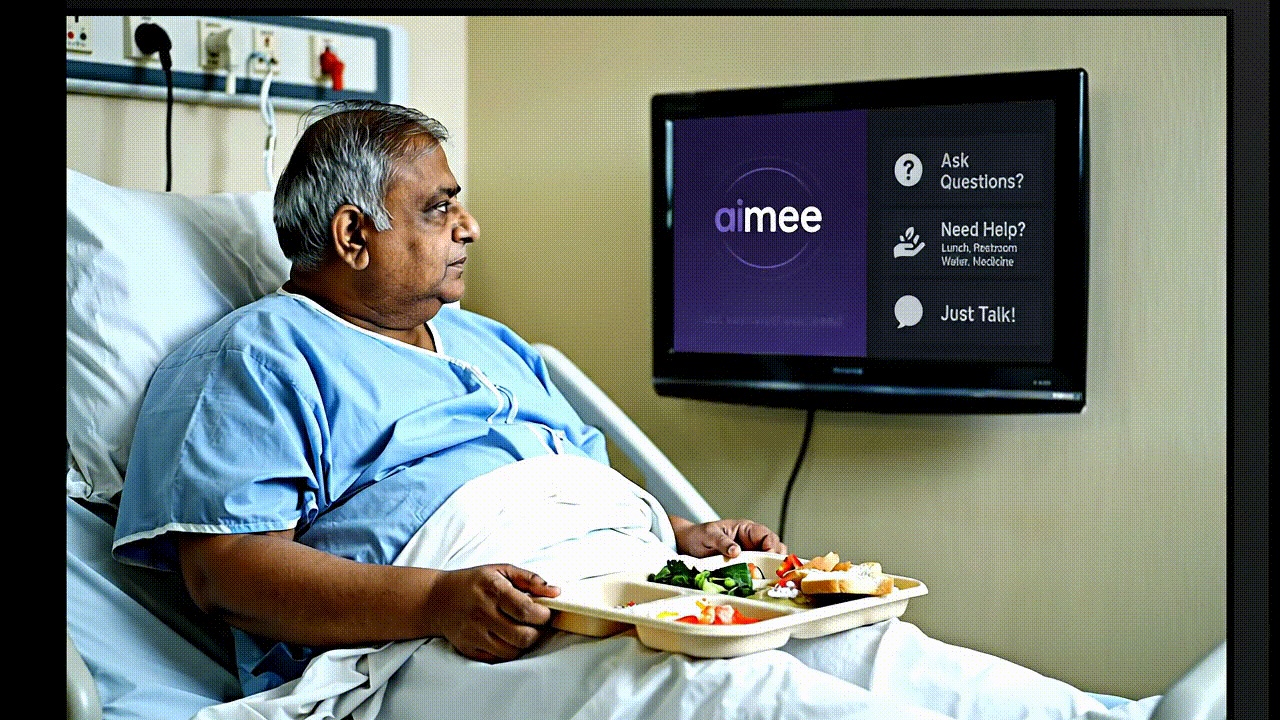
Nutrition Tolerance Check
aimee conducts mid-afternoon nutrition tolerance assessments following meals. She inquires about nausea and overall meal experience when staff are not present.

Prevent Patient Leaving Room Alone (Kitchen)
aimee detects when patients are preparing to leave their rooms unattended. She engages them with care inquiries and gentle reminders about room restrictions for their safety.

Purposeful Rounding Every Hour
aimee conducts hourly purposeful rounding when patients are awake and available. She systematically addresses the 4Ps (pain position potty possessions) and coordinates bedside assistance as needed. Computer vision provides automated assessments for virtual nursing review.
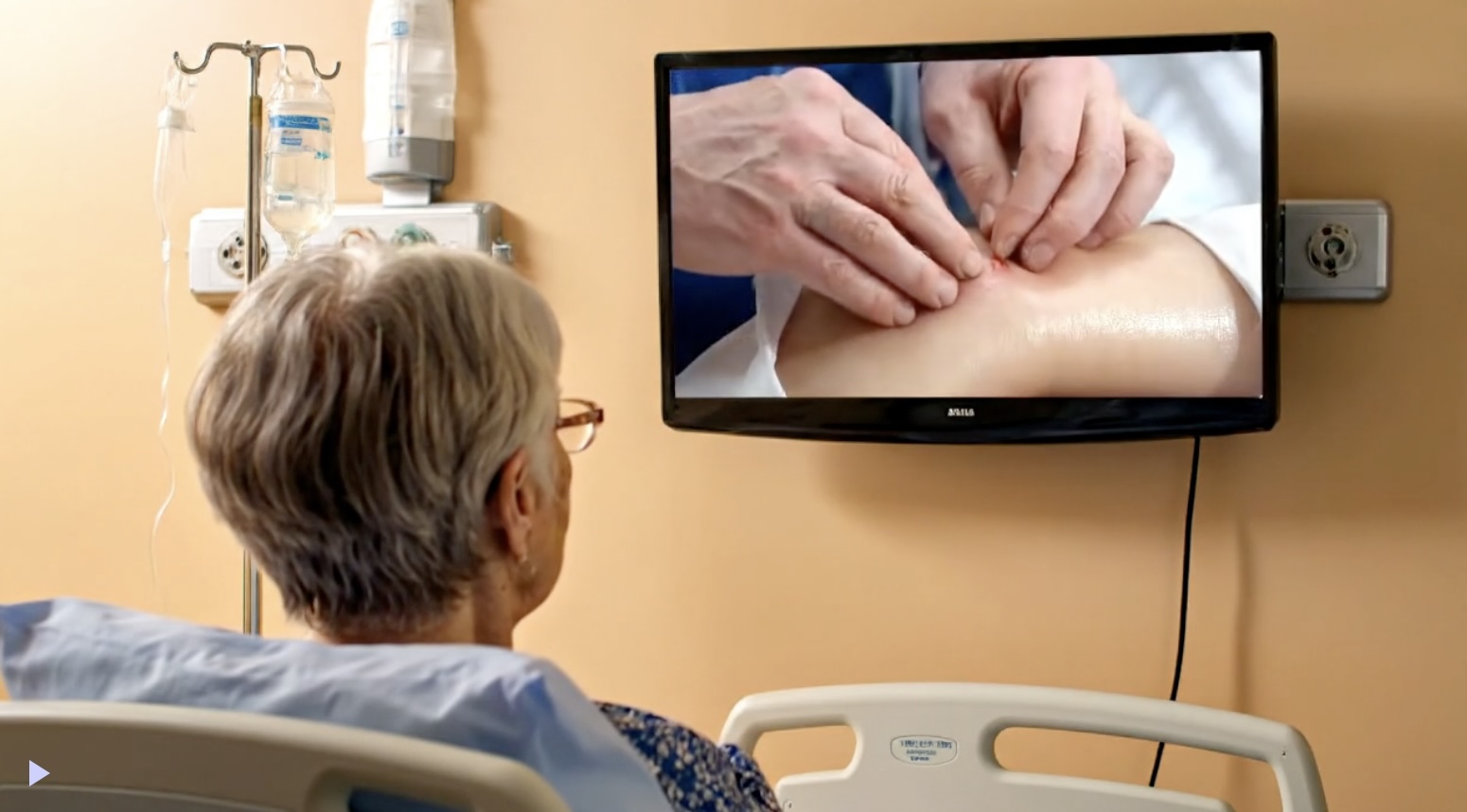
Discharge Education - Wound Care
Patient preparing for discharge after surgical debridement receives personalized wound care education. aimee retrieves their dressing-change plan from the EHR, waits for a quiet moment, then shows a two-minute instructional video demonstrating proper technique. After the video, aimee confirms patient understanding through guided review.

Purposeful Rounding Every Hour
aimee conducts hourly purposeful rounding when patients are awake and available. She systematically addresses the 4Ps (pain position potty possessions) and coordinates bedside assistance as needed. Computer vision provides automated assessments for virtual nursing review.

Help Patient Hydration
68-year-old postoperative patient after knee replacement, who has been reluctant to drink enough fluids. aimee initiates a morning check-in, guiding him through a standardized thirst-rating scale and verifying the volume he’s consumed. AImee assesses his current hydration needs, logs the informatio into the EHR, and offers timely reminders to help him reach his fluid goals.
.gif)
Ordering Lunch (Spanish)
Aimee: Hi, I'm Amy, a patient and clinical team assistant for the hospital. How can I help you today? Patient/Speaker: Hello Amy, do you speak Spanish? Aimee: Hello! Sure, I can answer in Spanish. How can I help you today? Patient/Speaker: Well, I'm a little hungry. Patient/Speaker: Can you help me order something to eat?

Help Patient Hydration
68-year-old postoperative patient after knee replacement, who has been reluctant to drink enough fluids. aimee initiates a morning check-in, guiding him through a standardized thirst-rating scale and verifying the volume he’s consumed. AImee assesses his current hydration needs, logs the informatio into the EHR, and offers timely reminders to help him reach his fluid goals.

Purposeful Rounding Every Hour
aimee conducts hourly purposeful rounding when patients are awake and available. She systematically addresses the 4Ps (pain position potty possessions) and coordinates bedside assistance as needed. Computer vision provides automated assessments for virtual nursing review.

